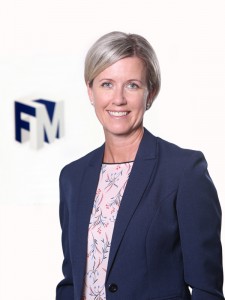Column: Are You Future-Focused Frugal?
 [Written by Carla Seely]
[Written by Carla Seely]
The amount of money you have at your disposal is not always dependent on how much you earn. Whether you make a lot of money or you don’t, it’s all about how you choose to spend it that can make all the difference in the future.
Earlier in the week, my husband and I were driving to work and he said the F-word…the word that stops me in my tracks. He said, “Carla, we really need to be more frugal.” I find this word absolutely loathsome – it makes me think I should feel guilty for enjoying the benefits of my hard work, spending money where I could save it instead. But, the reality is, he’s not wrong. Without pinching our pennies now, we won’t be able to fold those bills when we retire later.
We’re all familiar with the term frugal, but do we truly understand its meaning? Basically, to be considered frugal means to consistently make your needs the number one priority and your wants secondary. Addressing your financial situation is important and something you should hold yourself accountable for; ignoring it will only make it worse down the road.
Recently, I was talking to someone who said they spent twenty dollars every day on lunch because they couldn’t be bothered to bring lunch from home. One difference between people who are frugal and those who are not is that frugal people don’t outsource anything they can do for themselves – and they certainly don’t buy lunch every day just because they find it burdensome to make it.
Let’s face it, if you have the basic skill set and time to do things yourself, do you really need to hire a landscaper or a cleaner to do it for you? Do you need to have that lavish catered birthday party when the celebration can still go on without the extravagance, or always fly business class when the airplane will still arrive at the same time and destination regardless of whether you’re in the front or the back? Realistically, the answer is no.
When it comes to financial frugality, by either developing and sticking to a budget, or by paying yourself first then using the remaining to pay your bills and purchase extras, you can begin to take hold of your financial situation. On the other hand, when you put everything before your finances – comfort, appearances, rewards, wants, etc. – it’s easy to spend more than you have budgeted each month, especially in today’s society where it’s become commonplace that the more money you make, the more you spend.
Contrary to what’s trending, the secret to financial independence is not by living paycheck to paycheck, but by applying some good old-fashioned financial common sense. Start by taking a long, hard, honest look at your finances — your budget, income, debts, and expenses. Figure out exactly where your money is going; look at the essentials [needs] versus the non-essentials [wants]. If it’s not uncommon for you to spend your hard-earned cash on a couple of unnecessary wants each month, then you can probably afford to apply some financial frugality to your money management and put voluntary contributions into your pension plan instead, for example.
A friend of mine once said that being frugal means living below your means, not living up to your means [or, even worse, beyond your means]. Those who are successful in reaching their financial goals are the ones who have created a plan from the beginning. Deciding to be debt free, to boost your retirement savings by making extra contributions into your pension plan, or to live on one income and save the other in a two income household are all examples of plausible financial goals. Once you have established your own financial goals, develop and implement a plan to reach them.
For most of us, being financially independent might mean making sacrifices. But, as Warren Buffet once said, it helps to remember, “True wealth is not measured in possessions, but in assets,” as quoted in the Forbes 2014 magazine. It’s time to get honest about your spending habits. Focusing on your finances and committing to becoming financially independent sooner rather than later is important. Although being frugal might feel like a sacrifice today, it will provide you with long-term options and resources tomorrow.
- Carla Seely is the Chief Operating Officer at Freisenbruch, if you would like any further details please contact cseely@fmgroup.bm or call 441 297 8686

